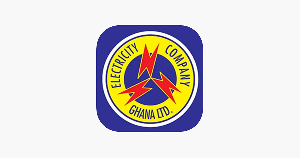In a country grappling with a stubborn corruption pandemic, the time has come for Ghana to rethink its traditional approaches to accountability. The recent scandals—from the mysterious disappearance of over 1,300 containers meant for the Electricity Company of Ghana (ECG), to the alleged corruption case against Adu Boahene, to the attempt by his spouse to cart away suspected illicit cash, and the submission of over 2,400 corruption complaints to President Mahama’s “Operation Recover All Loot” (ORAL) team—paint a disturbing picture of systemic failure and entrenched impunity.
These developments underscore a troubling reality: our public institutions alone cannot be entrusted with rooting out corruption. Too many times, internal audits are delayed, reports are buried, and whistleblowers are silenced. It is in this context that private investigators must rise as an indispensable ally in Ghana’s war on corruption.
An Unseen but Capable Force
Private investigators operate outside the political and bureaucratic maze that often impedes timely, transparent investigations. Our work is discreet, efficient, and immune to political interference. We deploy surveillance, forensic audits, digital tracking, and undercover work—tools that are essential for exposing hidden networks of corruption.
Imagine how swiftly the ECG procurement scandal could have been unraveled had independent investigators been empowered to probe the supply chain and identify who benefitted from the GH₵8.3 billion overspending spree in 2023 alone. The disappearance of over 1,300 containers is not just theft—it’s a betrayal of public trust. Yet, even today, the system struggles to hold anyone accountable.
Collaboration, Not Competition
Private investigations are not meant to supplant the work of the Attorney General, the Auditor-General, or EOCO. Instead, we offer a complementary service—one that fills the gaps and accelerates justice. In many countries, private investigators have been engaged by civil society, private sector actors, and even governments to conduct parallel investigations that expose the rot from within.
In Ghana, we need legislative reform that recognizes and regulates the role of private investigators in public interest cases. Licensing, oversight, and clear legal boundaries are necessary, but so is the political will to embrace innovation in anti-corruption work.
The Mahama Opportunity
President Mahama’s renewed commitment to fighting corruption offers a fresh opportunity. His ORAL initiative has already received over 2,400 complaints—evidence of widespread public dissatisfaction and a hunger for justice. However, no matter how committed the new administration may be, it cannot succeed alone.
The ORAL team, which includes respected anti-corruption figures, could enhance its impact by commissioning vetted private investigators to pursue leads, recover stolen assets, and build prosecutable cases. This is especially crucial when public officials, security operatives, or political insiders are implicated—cases where public investigators might face pressure or conflict of interest.
Conclusion: Empower the Unafraid
Corruption thrives in darkness. Private investigators bring light to places others fear to go. We are not bound by political loyalty or bureaucratic inertia. We are bound by results and by a commitment to truth.
Ghana stands at a crossroads. If we are truly serious about ending the culture of impunity, then we must empower every legitimate force available to us—including the often-overlooked private investigator. Let us open the door for meaningful partnerships and give corruption nowhere to hide.
Stay tuned for a heartwrenching investigation into a food processing company with offices in Tema and Labone, engaged in Ghana's biggest corporate corruption scandal. It is simply mind-boggling.
Meanwhile, watch this concluding part of our sit-down with the 100-year-old World War II veteran, who was also present at the 28th February Shooting, below:
Opinions of Sunday, 30 March 2025
Columnist: Baffour Edward Ewuah















